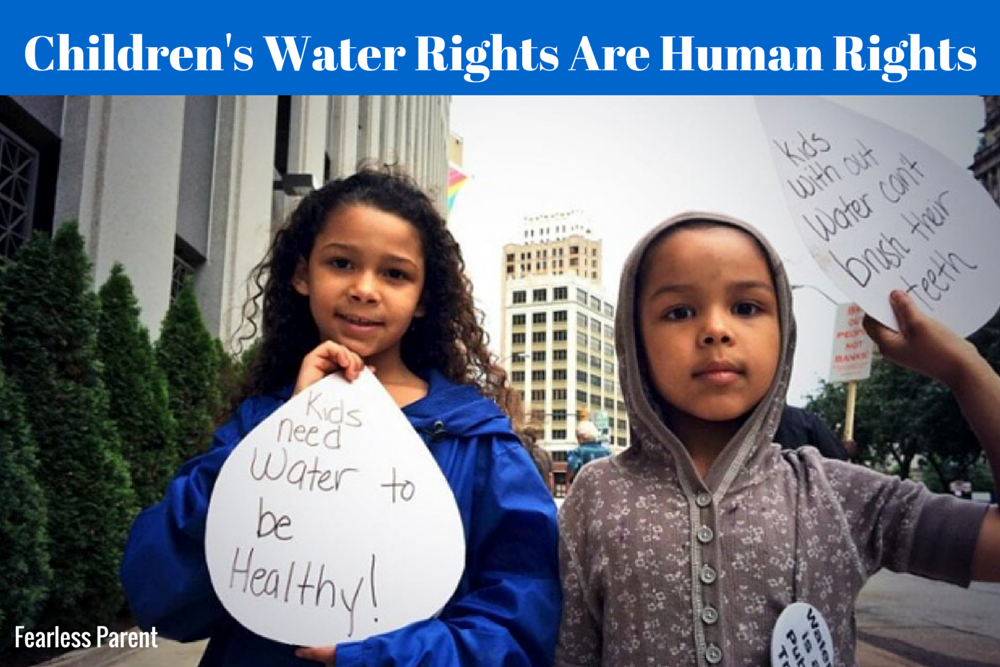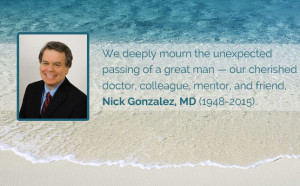On July 28th, 2010, for the first time in history the United Nations General Assembly clearly defined the human right to water in Resolution 64/292. The Resolution acknowledges “the importance of equitable access to safe and clean drinking water and sanitation as an integral component of the realization of all human rights,” and calls on States to fulfill their responsibility to provide this water for all, particularly to those in the developing world. Despite this Resolution and countless other UN measures establishing the human right to water—such as the UN’s declaration that the decade from 2005–2015 is the “Water for Life” International Decade for Action—nearly five years following the adoption of Resolution 64/292, the human right to water is still nowhere near a reality for millions around the globe, and profoundly impacts one of the world’s most vulnerable populations—children.
The Declaration of the Rights of the Child of 1959, the basis for the UN Convention on the Rights of the Child adopted in 1989, states that children “shall be entitled to grow and develop in health.” The Convention on the Rights of the Child promises “clean drinking water” for all children. According to UN Resolution 64/292, governments are obligated to facilitate access to safe drinking water, and according to Principle 4 of the Declaration of the Rights of the Child and Article 24 of the Convention on the Rights of the Child, governments have a special obligation to ensure that the need for safe drinking water is fulfilled for all children. Certainly in places like Gaza, Bolivia, and India—where water conflicts have reigned in recent years—this need has not been met and the human right to water has been repeatedly violated. The American public—especially parents—must be aware, however, that across the U.S. in cities like Detroit and Washington D.C., children’s rights to health are being put at risk as a result of the state and federal government’s failure to ensure the protection and realization of the human right to water. Lack of basic water services, including indoor plumbing, for the poorest residents of the nation’s most highly populated states including New York and California are also a violation of these rights.
It must be noted that the United States has never ratified the Convention on the Rights of the Child. One result of ratification that proponents of ratification cite is that the Convention would put a stop to the U.S. practice of allowing life imprisonment for children under 18. On the other hand, however, U.S. critics of the Convention argue that it opposes the American Constitution and enables the federal government to supersede parental rights. A thoughtful debate on the interaction between governmental and parental responsibility is necessary, but when it comes to basic rights of sustenance—nutrition and water—the UN convention is key. As we move into a new era of increased water scarcity and insecurity—exacerbated by climate change—as well as the increased treatment of water as a commodity to be bought, sold, and withheld rather than as an essential to which all people are entitled, it is important to have an affirmation of the basic human right to access to clean water without control and limitation by corporate or governmental interests. This does not mean that concerns about parental rights being superseded by state and federal governments should be ignored, however, as they are fundamental rights as affirmed by the U.S. Supreme Court (in cases such as Pierce vs. Society of Sisters), and also deeply intertwined with children’s rights to health. Children’s rights to safe water are by no means dependent on ratification of the Convention, and shut-offs in Detroit are already in violation of the human right to water according to UN Resolution 64/292.
I research international water rights, and have spent much of my time over the past few years closely examining the harsh daily realities for people in the Middle East, Asia, and South America as the result of lack of water access and extraordinarily poor water quality. This past January I traveled to the Palestinian Territories where a water crisis has already begun to have catastrophic effects, and promises to severely worsen in the next few years. The United Nations Relief and Works Agency has reported that without immediate action, the Gaza Strip’s overused aquifer will be irreparably damaged by the year 2020. Gaza’s aquifer is the sole source of water for the Strip’s nearly two million inhabitants, and overuse of this single aquifer has led to highly contaminated drinking water, as has severe damage from cyclical military invasions and the impossibility of importing supplies to repair the aquifer due to the blockade on Gaza—including control over border crossings, Gaza’s water and airspace, and limitations on the exportation and importation of goods.
Health effects resulting from consumption of this water include a high number of cases of pediatric kidney disease from excessive chloride consumption and excessive saline intake, ulcers from high fluoride intake, and “blue baby syndrome”—a condition that results from an infant’s consumption of unfiltered water with high levels of nitrate, thereby preventing infants from absorbing a sufficient amount of oxygen in their bodily tissues. In West Bank cities that I visited such as Jericho and Bethlehem, residents discuss the tremendous impacts on health, sanitation, and agriculture that result from often going months on end without a steady supply of fresh water. It is no surprise that West Bank residents are suffering due to a severe lack of water access—nearly 50,000 people in the West Bank have access to only the minimum amount of water deemed necessary for “short-term survival in an emergency situation” according to the World Health Organization.
In the remainder of this article, however, I do not aim to focus solely on the numerous human rights abuses taking place around the globe that center on the violation of the human right to water. Rather, this post sheds lights on the domestic infringement on the human right to water right here in the U.S.—an infringement that has startling similarities to the denial of the human right to water taking place across the world.
In June 2014, the UN Office of the High Commissioner for Human Rights reported that water shut-offs in the U.S. city of Detroit were a “violation of the human right to water and other international human rights.” Despite the problematic nature of the way the Detroit situation was readily classified as a human rights violation in contrast to the ways in which the water access situations in places such as Gaza and the West Bank, it is worth noting that the UN statement seems to have done little to enact sustainable protection for the human right to water for the victims of the Detroit water shut-offs. Just this month, since May 11th, approximately 3,000 Detroit residents have received water shut-off notices and are under threat of having their water supply terminated due to the inability of low-income and impoverished residents to pay their water bills. The Detroit City Council proposed an affordability plan that would have reduced water costs to 2-3% of a resident’s income nearly a decade ago, but the plan was never implemented. According to UN Resolution 64/292, an individual cannot be denied water access—clearly defined as a fundamental human right—due to insufficient means to fund this water access.
Detroit Councilwoman Raquel Castaneda-Lopez noted that the unsanitary living conditions created by lack of water access put children and the elderly at risk in particular. Detroit has attempted to force low-income residents to pay the price for an indebted water department by punishing the victims of this broken system rather than repairing the system itself. Rather than forcing Detroit residents to go on unaffordable payment plans, the city of Detroit ought to implement an affordability plan which includes realistic fees for the city’s poorest residents.
Sadly, Detroit is not the only U.S. city impacted by lack of water access or poor water quality. In 2001, levels of lead in Washington D.C. tap water was found to exceed 15 parts per billion—the maximum amount considered to be under a threat level requiring immediate action, though no level of lead in drinking water is ever considered safe according to the Environmental Protection Agency’s Lead and Copper Rule. Lead is highly toxic for developing fetuses, young children, and infants due to the extent to which it disrupts mental development—effects of exposure include impaired speech and language, developmental delays, decreased bone and muscle growth, poor muscle coordination, and seizures.
Water fluoridation—the insertion of fluoride into public water sources under the U.S. government’s presumption that this supports dental health, raises a whole host of ethical and safety issues in and of itself. Countless nations such as France, Germany, Japan, The Netherlands, and Sweden have ceased the practice of fluoridation, in part due to safety concerns because of neurological, kidney, thyroid, and bone damage resulting from excessive fluoride intake. Illness and death have been reported in the U.S. as a result of incidents where excessive fluoride is released into the water system accidentally, such as in Alaska in 1992. Despite evidence that fluoride puts children’s health at risk, and the precedent set by other nations, the U.S. continues the practice of water fluoridation today. Given that Resolution 64/292 calls for the safety of water for all in addition to mandating that water be readily accessible, the U.S. ought to heed safety concerns and follow the precautionary approach taken by several European nations by ceasing the practice of water fluoridation.
Clearly, the U.S. government and several foreign governments have a long way to go in order to ensure that children’s right to health and the human right to water are both met. The child’s right to health and the human right to water are both being violated by countless examples of safe water access denial across the globe. Meeting these rights entails both access to readily available water, and ensuring that this water is of the safest possible quality. There are many threats against a child’s right to “grow and develop in health” in today’s world. Unsafe water and lack of water access are two major threats. The elimination of these threats begins with the public’s awareness of the myriad ways in which governments domestically and abroad are failing to protect the human right to water, and advocacy to ensure that this essential right is acknowledged and defended.
© 2015, Carly A. Krakow
 Carly A. Krakow is a human rights-driven researcher, writer, and activist. She is a student at New York University studying Human Rights and Environmental Policy. Carly is currently a Fellow in the Gallatin Human Rights Initiative’s Global Fellowship in Human Rights program. She has spent time in the Middle East investigating the intersection of environmental concerns, human rights violations, the human right to health, and international law. Carly will be returning to the region this summer to focus on violations of the human right to water. You can read more about her on NYU’s website, more about her Fellowship research here, and on the Gallatin Global Fellowship in Human Rights blog where she will be posting updates about her work this summer. Connect with her on LinkedIn and check out some of her recent articles including her op-ed on corporate data collection and educational privacy, and another piece on the human right to water.
Carly A. Krakow is a human rights-driven researcher, writer, and activist. She is a student at New York University studying Human Rights and Environmental Policy. Carly is currently a Fellow in the Gallatin Human Rights Initiative’s Global Fellowship in Human Rights program. She has spent time in the Middle East investigating the intersection of environmental concerns, human rights violations, the human right to health, and international law. Carly will be returning to the region this summer to focus on violations of the human right to water. You can read more about her on NYU’s website, more about her Fellowship research here, and on the Gallatin Global Fellowship in Human Rights blog where she will be posting updates about her work this summer. Connect with her on LinkedIn and check out some of her recent articles including her op-ed on corporate data collection and educational privacy, and another piece on the human right to water.
Photo credit: Justin Wedes
In the midst of the Detroit water shut-offs, a new campaign called “Rebuilding Hope in the Motor City” continues to offer hope to the residents of Detroit. The campaign is working to renovate an abandoned public elementary school building serving as a community center that provides hundreds of families in northwest Detroit with a food distribution program, after-school mentoring for local kids, assistance programs to help low-income residents with utility bills and emergency rapid relief in partnership with local non-profits, and more. Learn more and support the campaign today!












June 22, 2015 1:06 am
Comments 0